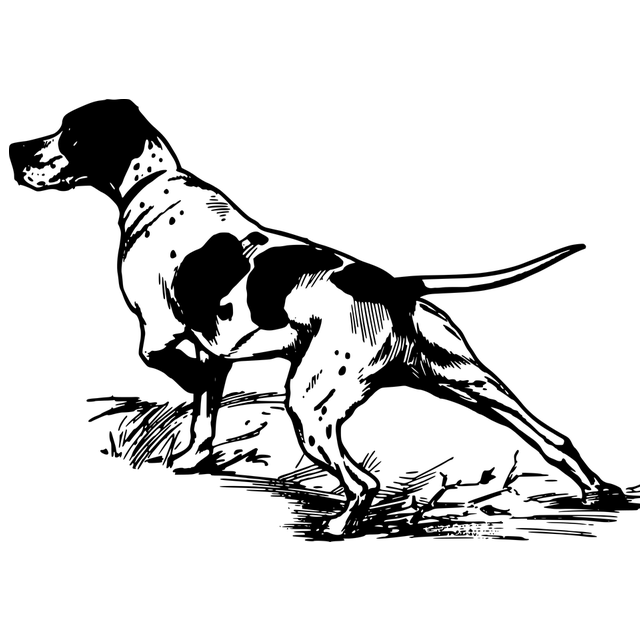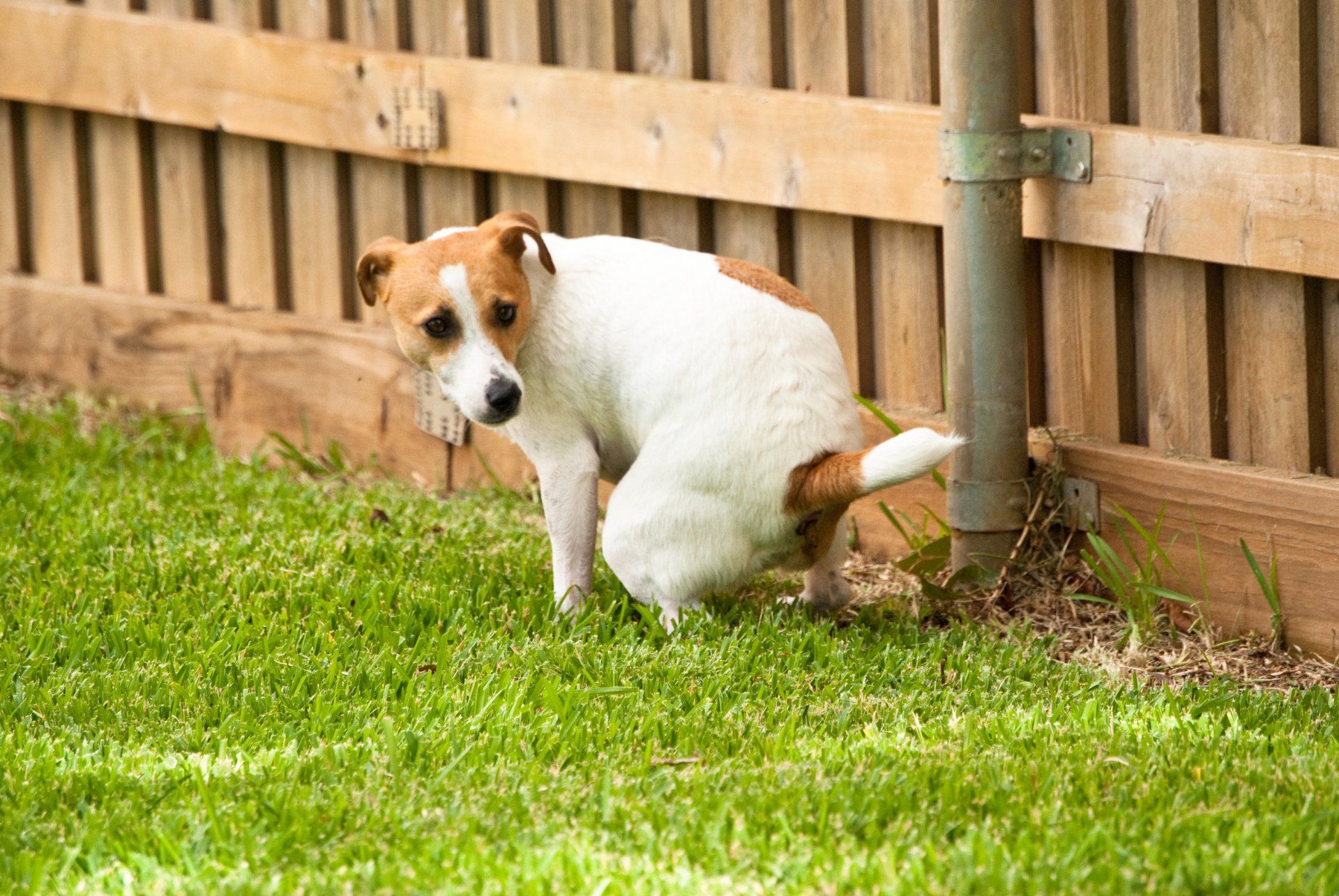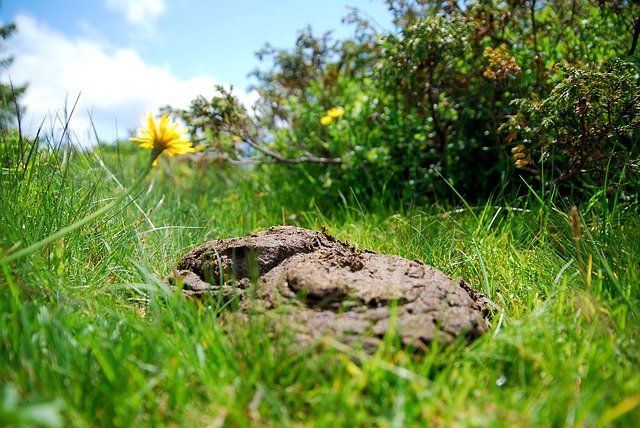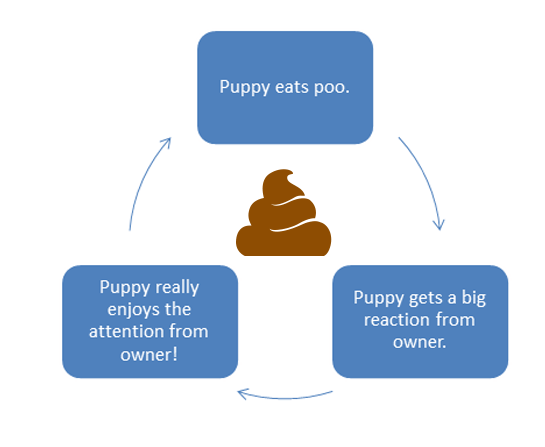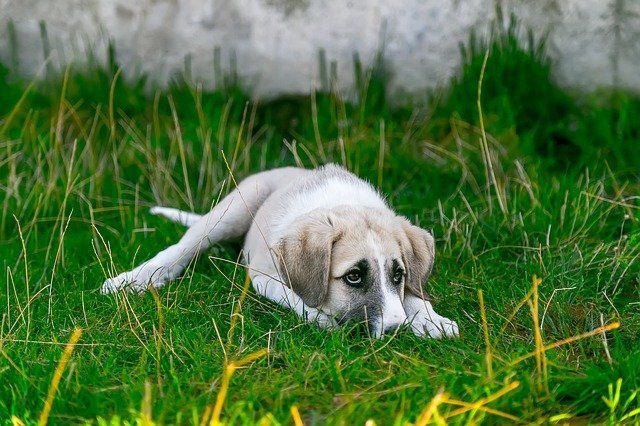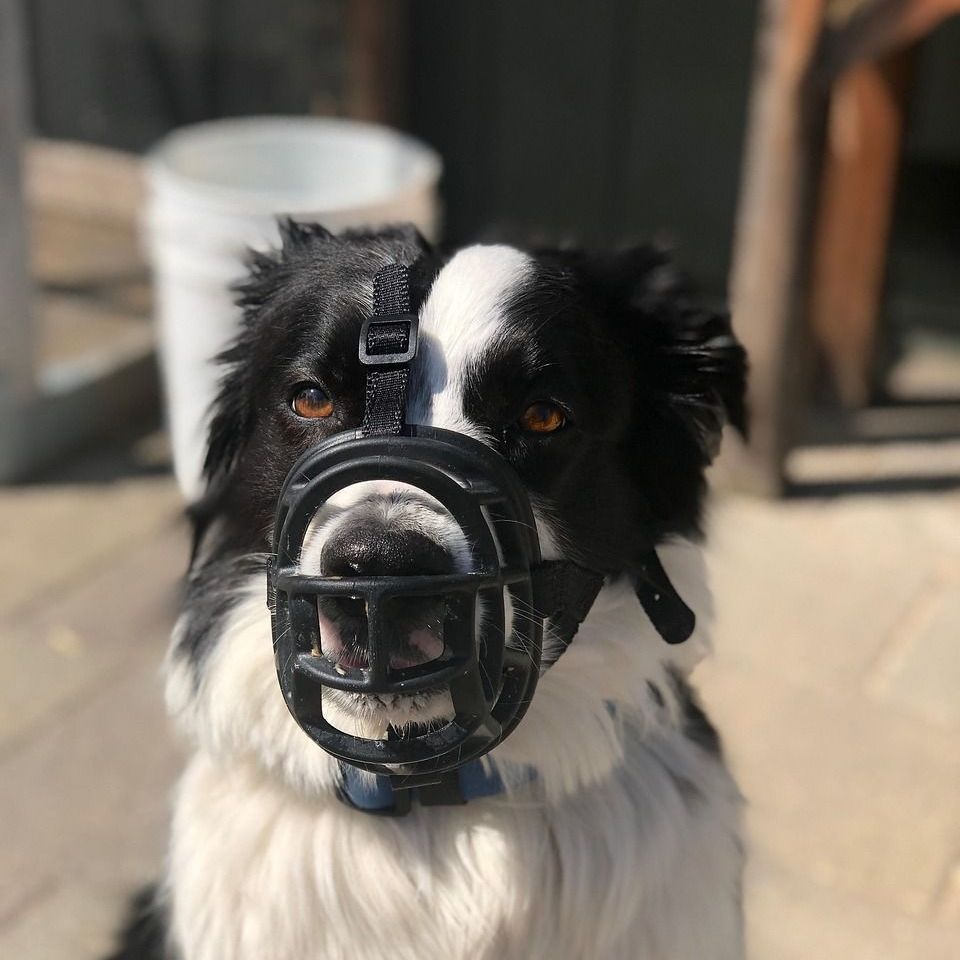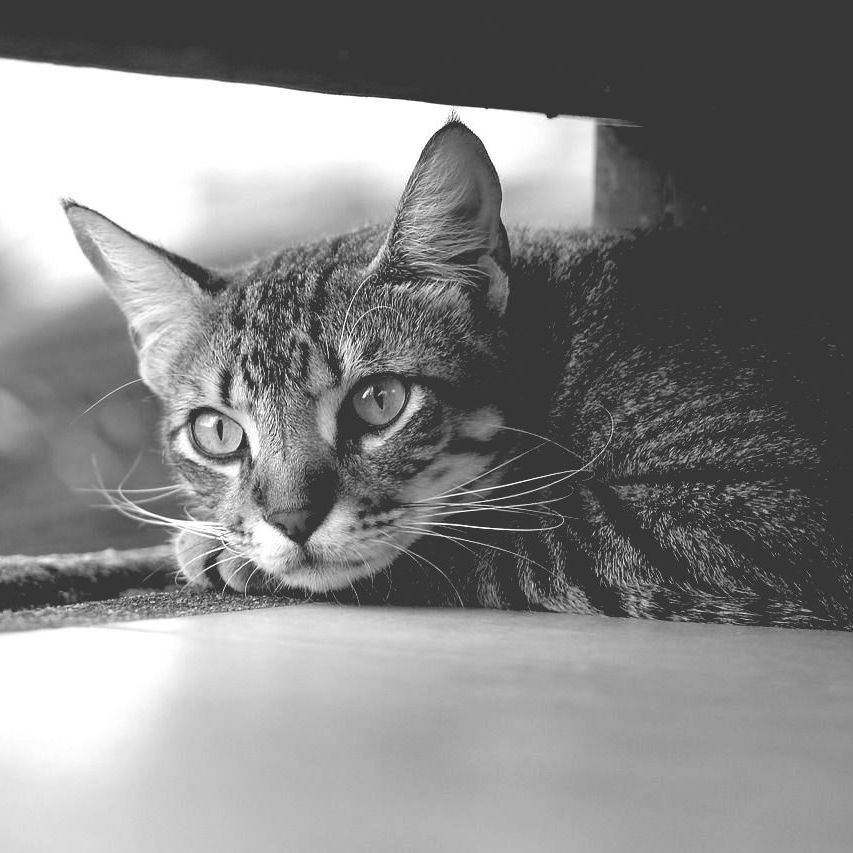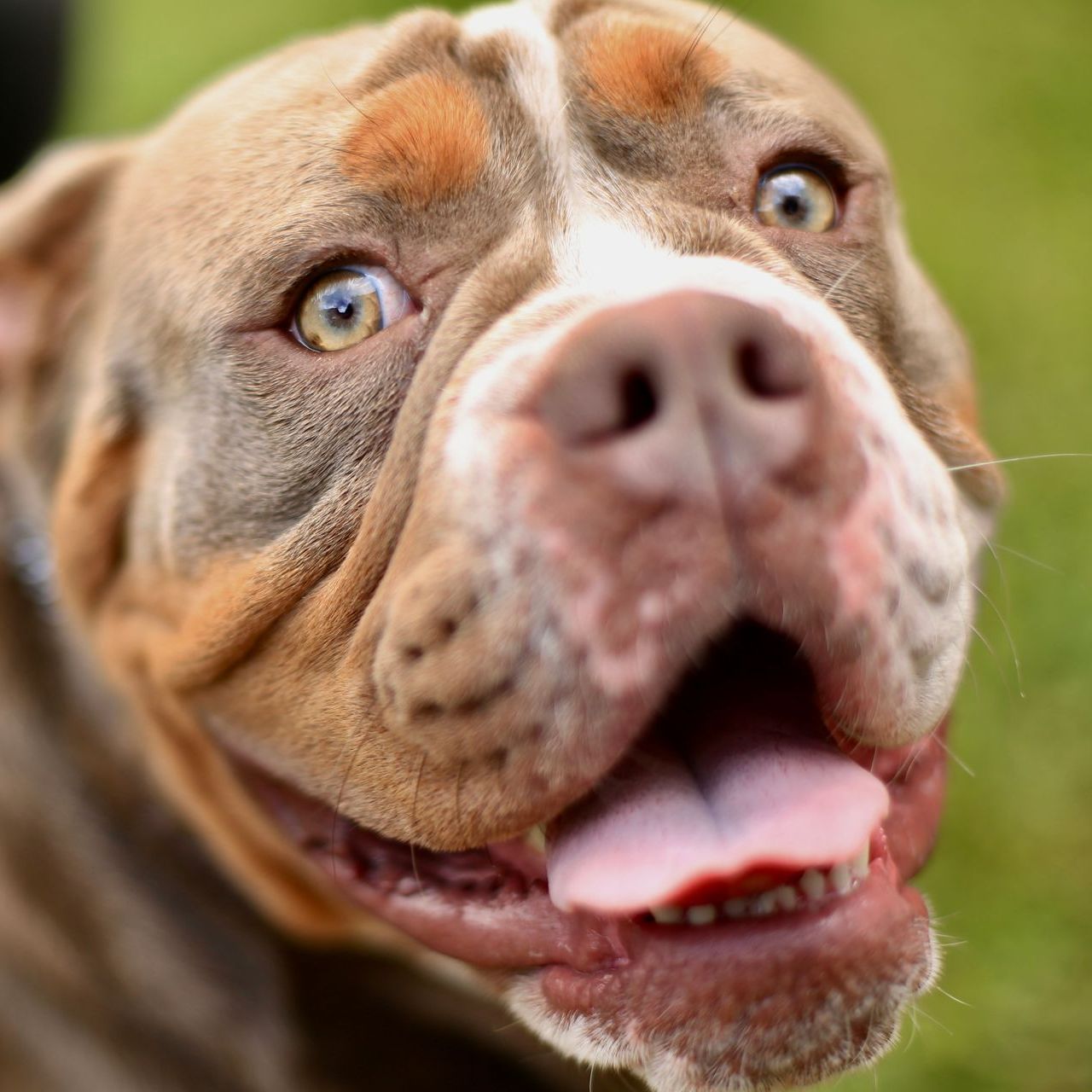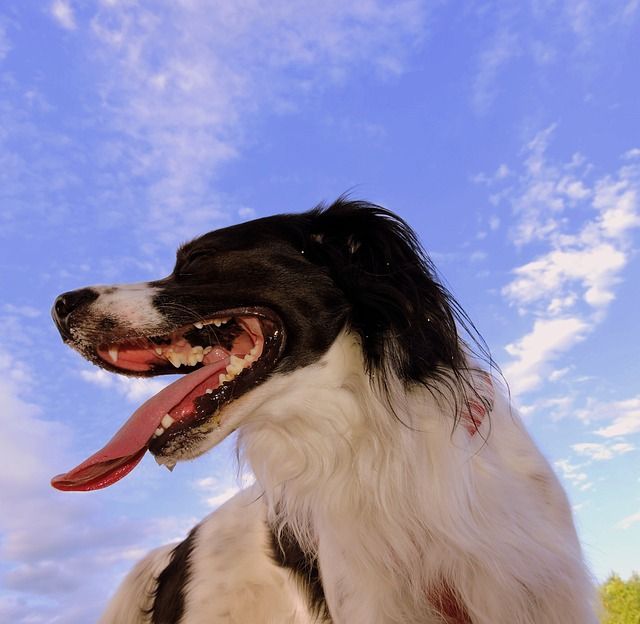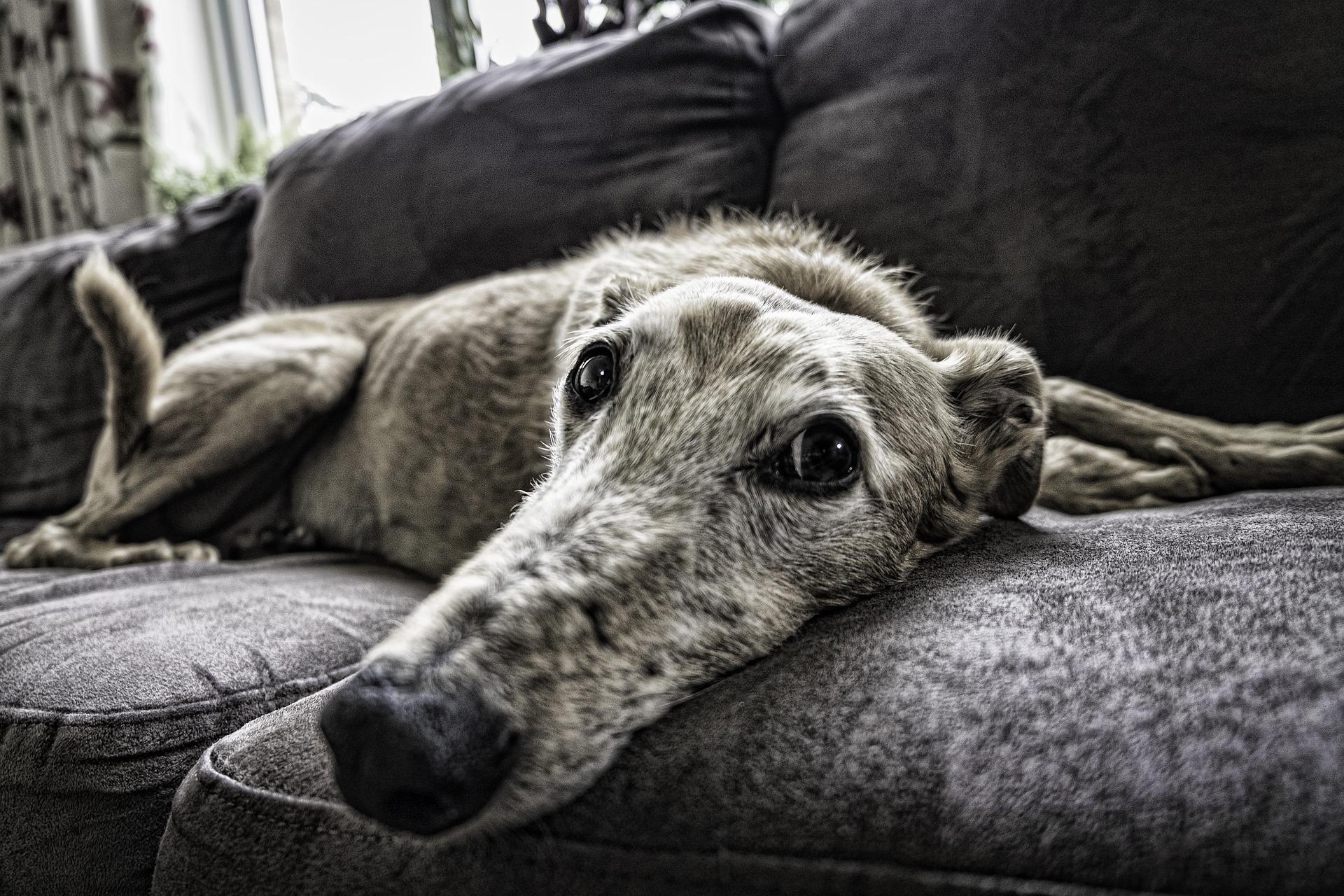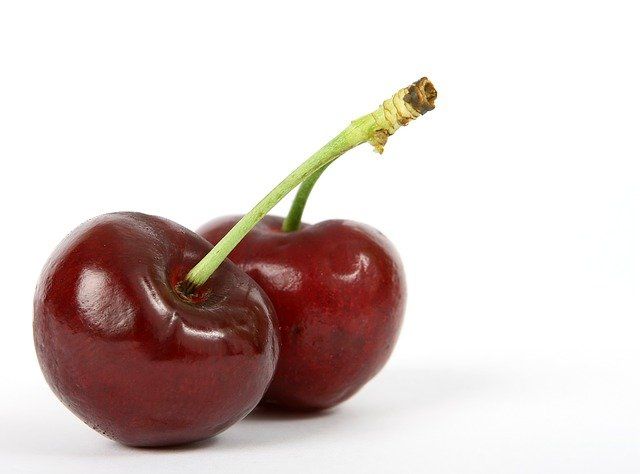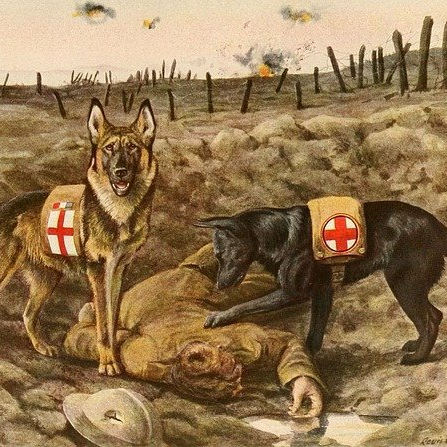Why does my dog eat poo?
This is quite a common problem that we get asked about - particularly in young dogs. Coprophagia ( copro = poo, phagia = eating) is normal in some species. Rabbits cannot digest all their food in one go, and so the first set of faeces (called caecotrophs) are eaten almost straight away and the rabbit then has a second digestive crack at it in order to get the full nutritional benefit.
Cows don't eat their own poo, but will regurgitate their food to have another chew at it and process it repeatedly like this before it goes on to be digested.
Why does my dog eat sheep/cat/horse/cow/fox/badger poo...
It is REALLY common for dogs to want to eat the poo of other species. Often carnivore poo (eg cat or fox) is seen as the ultimate in "snack" for them, and herbivore poo (eg sheep or cow) can be just as tasty. The bottom line is, dogs like to eat this kind of poo because..... IT TASTES NICE! To the dog at least.
Carnivore faeces does contain some degree of undigested meat protein and it is this that is likely to be appealing to your dog. Evolutionary wise this scavenging probably evolved so as not to waste vital energy and nutrients. In reality, herbivore poo doesn't really contain anything useful to your dog...
Is it going to do any harm?
In all likelihood, your dog probably won't come to any harm by eating the poo of other species - other than it being quite unappealing for their owners! However there is some risk of problems.
- There is an increased risk of parasite transmission between animals.
- There is a risk of drug absorption. This is particularly the case if farm animals have been recently treated with medicines that could come out in the stools.
- Faeces can contain bugs that can make our pets really poorly - such as Salmonella or Campylobacter.
- Reverse risk - farm animals can pickup parasites from our pets too
! Dogs can carry a nasty tapeworm that can cause serious disease in sheep for example. Another reason to PICK UP POO when out on a walk!
What about my dog eating its own poo or that of other dogs?
This is a really common behaviour in young dogs. Very occasionally it can be done due to a nutritional problem or a dietary imbalance, but this is actually REALLY RARE. Interestingly:
- It is more prevalent in multidog households (2 or more other dogs).
- Female dogs are more likely to be affected than male.
- Dogs will usually only eat fresh stools (less than 48hrs old).
- Dogs will tend to only eat properly formed stools and will avoid soft poo or diarrhoea.
- Greedy dogs that have a habit of stealing food are more likely to eat their own poo.
For most occasions, puppies will do it because either they enjoy it or it is a vice that they do because they get owner attention for it.
A puppy may start eating poo because it is inquisitive. The owners are appalled by this and rush over and try to distract the puppy by either talking to it, offering it alternative food or a favourite toy. Quite often the puppy then works out that this is a great way to get more food or attention and so will keep doing it!
So, our top tips for trying to resolve this vice:
- Make sure the garden is always scrupulously clean and all dog poo is picked up regularly.
- As soon as the dog has done a poo, call them inside and give them a reward. Then quietly go back outside and pick up the poo avoiding any interaction with the dog.
- If the dog eats the poo as they do it, then you may need to try and toilet your dog in a lead and then quietly and assertively move them away from the poo after they have done it. Once a good distance away, (and the dog hasn't managed to eat any), then you can reward them with a treat and some fuss.
- If your dog does a poo in the house, never tell it off or frighten it as this can lead to faecal anxiety (see later on).
If this doesn't work then you can try the following
- Sometimes, adding FRESH Pineapple Juice to the dog's food can make their faeces less appealing to eat. Pineapple contains a chemical called Bromelain which breaks down some of the undigested meat protein. It has to be fresh however, as Bromelain isn't found in processed or concentrated fruit.
- You can use propitiatory products such as "De-Tur" (we so think this should be called De-Turd, but never mind). These are shop-bought tablets that you add to the food that work in a similar way. Our experience of these are not great to be honest.
- You can try the " Booby-Trap " poo. This is where you leave a poo out deliberately, but add something like Pepper, Tobasco or Bitter Apple to it, hoping that this may cause a sensory aversion to eating the faeces.
Other reasons why dogs may eat their own poo.
Other than for attention, we also see dogs that eat their faeces for other reasons.
- Isolation . Dogs that are kept for long periods alone, tend to indulge in this behaviour more.
- Incorrect House Training . If puppies are anxious about their toileting habits (often due to overly harsh training), they may eat their faeces as a way of "hiding the evidence".
- "Kennel Syndrome" where animals kept in confined areas with other dogs may eat their own poo too. We do see this is dogs that have come from rescue centres quite often.
When do you need to worry?
We really think you should be thinking about veterinary involvement if:
- Your dog is not producing solid stools.
- Your dog is struggling to maintain weight or put weight on.
- There is any vomiting associated with eating stools.
- Your dog is acting unwell in any other way.
- You are seeing evidence of intestinal parasites.
If you are still struggling, then please come and have a chat to one of our vets or nurses who will be able to give your further advice!
